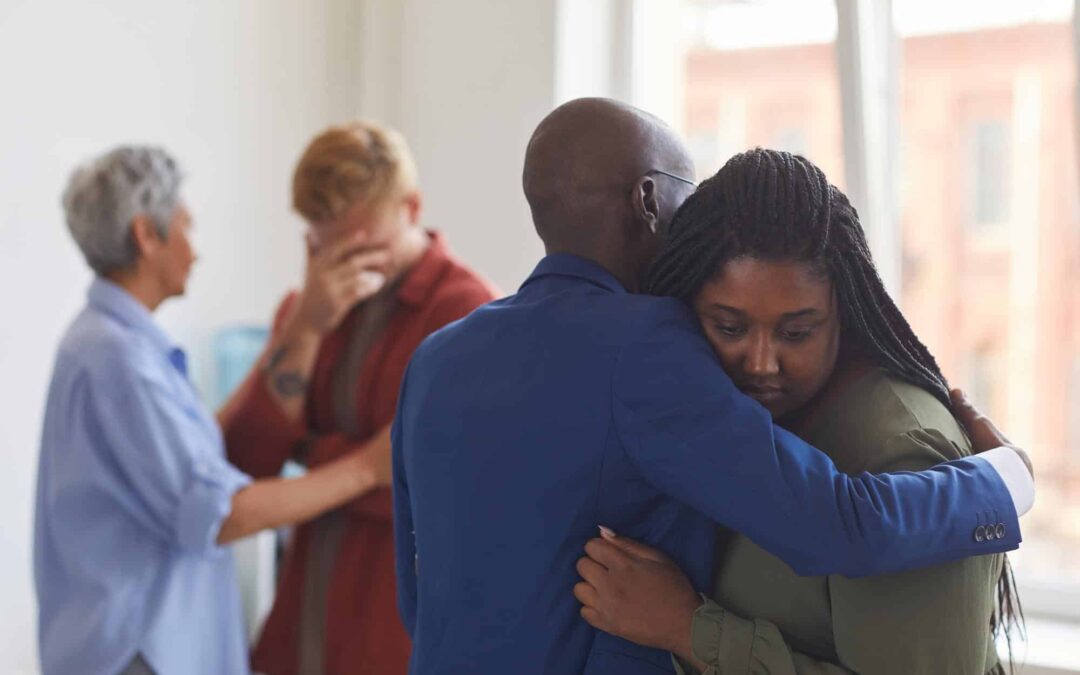Building a strong support system is a critical pillar of addiction recovery. This network of loved ones, therapists, and support group members provides encouragement, accountability, and a sense of belonging – all essential ingredients for lasting sobriety. However, addiction can often damage these very relationships. Effective communication skills are the key to rebuilding trust, expressing needs, and navigating conflict in a healthy way.
The Importance of Communication in Recovery
During active addiction, manipulation, dishonesty, and isolation become common behaviors. These actions erode trust and damage relationships with loved ones. Rebuilding these connections requires open and honest communication.
Effective communication also allows individuals in recovery to express their feelings and needs assertively. This is crucial for navigating triggers and avoiding relapse situations. For example, being able to say “no” to a friend pressuring you to drink can be a powerful tool for maintaining sobriety.
Here are some of the key benefits of effective communication skills in recovery:
- Stronger relationships: Open communication fosters trust and strengthens bonds with loved ones.
- Reduced isolation: The ability to express oneself effectively helps individuals feel more connected and supported.
- Improved coping skills: Being able to articulate needs and boundaries helps individuals manage stress and avoid relapse triggers.
- Reduced conflict: Effective communication skills minimize misunderstandings and enable healthy conflict resolution.
Mastering the Art of Communication: Key Strategies
Developing strong communication skills is a journey, but the rewards are significant. Here are some key strategies to incorporate into your recovery journey:
- Active Listening: This is the foundation of effective communication. Active listening involves truly paying attention to the speaker, both verbally and nonverbally. Try summarizing what you’ve heard to ensure understanding and ask clarifying questions.
- “I” Statements: Using “I” statements allows you to express your feelings and needs without placing blame on others. For example, instead of saying “You always make me feel bad,” try “I feel hurt when you…”
- Assertiveness: Assertiveness allows you to communicate your needs and boundaries in a respectful and confident manner. This is crucial for saying “no” to triggers and setting healthy expectations in relationships. You can learn more about assertive communication here: [invalid URL removed].
- Nonverbal Communication: Be mindful of your body language, facial expressions, and tone of voice. These nonverbal cues can often contradict your spoken words. Maintaining eye contact, using open body language, and speaking calmly can convey sincerity and openness.
- Expressing Feelings: Addiction can often lead to emotional suppression. However, learning to express your feelings in a healthy way is vital for recovery. Describing your emotions without blaming others helps build trust and fosters deeper connections.
- Conflict Resolution: Conflict is inevitable in any relationship. Learn healthy conflict resolution skills to navigate disagreements constructively. This may involve setting ground rules for communication, taking time to cool down before discussing an issue, and focusing on finding solutions rather than placing blame.
Effective Communication with Therapists and Support Groups
Communication is equally important when interacting with therapists and support groups. Here are some tips for maximizing these interactions:
- Honesty: Open and honest communication with your therapist is crucial for effective treatment. Be truthful about your struggles and experiences, even if they feel uncomfortable.
- Actively Participate: Don’t be afraid to ask questions and share your thoughts and feelings in therapy sessions and support groups. The more actively you participate, the greater the benefit you will receive.
- Provide Feedback: If something feels unhelpful in therapy or a support group, communicate your concerns. Open communication can help tailor the experience to your specific needs.
Building Bridges and Maintaining Recovery
Effective communication skills are a powerful tool for building strong relationships, navigating challenges, and maintaining long-term recovery. By incorporating these strategies into your daily interactions, you can foster a supportive network that empowers you on your journey towards lasting sobriety.
Remember: Recovery is a process, and communication skills, like any skill, take practice to improve. Resolute Recovery offers a range of programs and resources to support your communication development. Contact us today to learn more about how we can help you build a strong foundation for lasting recovery.
Finding Support at Resolute Recovery
Resolute Recovery understands the importance of effective communication skills for successful recovery. We offer a multitude of resources and programs designed to help you develop these essential skills, including:
- Individual therapy: In one-on-one therapy sessions, you’ll work with a skilled therapist to address the underlying emotional issues that may have contributed to addiction. Therapists teach specific communication techniques and provide a safe space for practicing healthy conflict resolution and expressing emotions.
- Group therapy: Group therapy provides a supportive environment to learn from others who are navigating similar challenges. It offers a unique opportunity to practice communication skills, give and receive feedback, and develop empathy for others’ experiences.
- Family programs: Rebuilding trust and fostering open communication with loved ones is an integral part of the recovery process. Resolute Recovery offers family programs to help address communication breakdowns, work through unresolved issues, and establish healthy dynamics for lasting recovery.
- Workshops and seminars: We regularly host workshops and seminars focused on developing communication skills within the context of recovery. These events provide a deeper dive into topics like active listening, assertiveness training, and conflict resolution techniques.
Additional Resources
Beyond the programs offered by Resolute Recovery, there’s a wealth of additional resources available to support your communication skills development. Here are a few credible sources to explore:
- The National Alliance on Mental Illness (NAMI): NAMI provides a wide range of resources and support for those affected by mental health conditions, including addiction. Their website offers information and educational materials on effective communication strategies: NAMI: https://www.nami.org/Home
- Substance Abuse and Mental Health Services Administration (SAMHSA): SAMHSA is a federal agency dedicated to improving the quality and availability of substance abuse and mental health treatment. They offer a variety of resources and publications on communication within the context of recovery: SAMHSA: https://www.samhsa.gov/)
- Books and Online Courses: There are numerous self-help books and online courses specifically dedicated to improving communication skills. Seek resources that address topics such as active listening, assertiveness, and conflict resolution.
The Power of Connection
Remember, open and honest communication forms the bedrock of a strong support network. By investing in your communication skills, you are ultimately investing in your recovery journey. With patience, dedication, and the support of Resolute Recovery, you can build the meaningful connections that will empower you to achieve lasting sobriety.
We encourage you to reach out to Resolute Recovery today. Let’s start a conversation about how we can support your journey toward effective communication and a fulfilling recovery.





